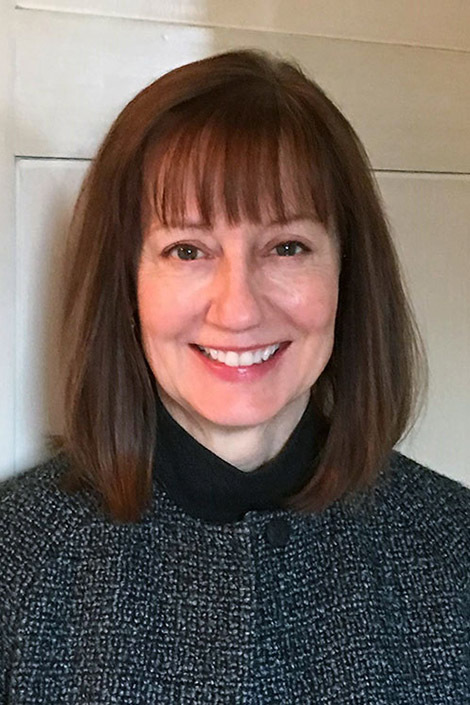Roberta Denning ’75 MBA ’78 was elected as the newest member of Stanford’s Board of Trustees in January. Denning and her husband Steve Denning MBA ’78 have most notably provided funding for the Denning House, which creates a physical space for the Knight-Hennessy Scholars Program. The two have also philanthropically supported the Graduate School of Business, graduate fellowships and arts and athletics programs at Stanford. She is currently serving a five-year term that began on Feb. 1.
The Daily sat down with Denning to explore her relationship with the University and discuss her goals for her time on the Board.
The Stanford Daily [TSD]: Tell me a bit about yourself and your time before coming to the Board of Trustees.
Roberta Denning [RD]: I did go to Stanford as an undergrad. I graduated in 1975 with an English major, and I also was in the humanities honors program, which existed at that time. Instead of taking honors in a department, you could do it with the humanities more broadly. Then I went back to Stanford a year later and got an MBA in 1978. I worked in publishing for a number of years for Time Inc., and then I went to work for Home Box Office, which was a nascent company at the time and did that for a little while. I did a consulting job for a newspaper in Venezuela, “el Nacional” in Caracas. I also worked for Newsweek, and I worked for Scholastic. But always on the business side, not on the writing side.
TSD: How did your first Board meeting go?
RD: I found the level of preparation, thoughtfulness, caring, all those things are what I expected would be very, very high. And they were. These are people that care very, very much about the University and take their responsibilities seriously. One thing that I can tell you: People attend. There’s not, “Oh, I couldn’t make it,” or “I couldn’t make most of it.” The Board members are there, and they’re there at every meeting, and they’re there the whole time, and they’ve read the material, and they’re paying attention.
It’s a very serious responsibility. There’s an expectation that if you agree to do this or if you’re so fortunate as to be asked, you know you’re going to fulfill your responsibilities.
TSD: Outside of the projects you’ve taken on with your husband and family and your election to the Board, where else are you involved at Stanford?
RD: Where I’ve personally been involved is in the Arts Initiative and things related to the arts over the last 10-15 years, perhaps. And I’ve been involved a bit in the School of Medicine sciences. But this is the first time I’ve served on the Board in a governance role, which I’m thrilled about.
TSD: Do you have any personal aspirations or new perspectives that you want to bring to the Board regarding the arts and humanities?
RD: I don’t have a new vision. But I would hope that I could be a voice for the importance of arts and humanities within a 21st century university and across the Board and in all kinds of areas, not only at the undergraduate level and not only in the areas where you’d expect. How does [art] infuse the campus? How does it infuse areas like the whole medical enterprise, which is so important at Stanford? How does it affect people who might not major in the arts or even take many arts classes, but have a campus where there’s so much available and so visible and so infused in what we do day to day? So I would just hope to be someone who has that as a love and commitment, but I think it’s really important for Board members not to be about one issue. I think we are there to care about the whole enterprise, to support the kind of the excellence that’s everywhere.
TSD: What was it like coming to Stanford as a frosh? Do you remember your first time coming to campus?
RD: I arrived sight unseen and was met at the San Francisco International Airport with red balloons and piled into some kind of a van that picked up all the people who were arriving at the airport at that time. I got my first look at Stanford going down Palm Drive and felt like ‘I’ve come home.’ These are my people. I felt at home, that there were people that care about some of the same things I cared about like learning and reading things. I thought California was the promised land.
TSD: What one piece of advice would you give current Stanford students?
RD: [Stanford]’s partly all the academic opportunities including relationships with professors. But then it’s also your opportunity to learn from your classmates, and I mean that really sincerely. It’s an incredible place to do that. Everybody will tell you this, but If you try to soak up the things that really appeal to you and follow your instincts on that, it will be a good thing in the long run. I know that the job market is what people care about. I know that you’re all working really hard. I know that you’re doing a million things. From the long-term perspective that I have, if you’re doing the things well and try to do them joyfully, things will work out better for you than if you don’t. When will you ever have a chance to have this many people your age who are so interesting and thoughtful and smart and enthusiastic and ambitious? When will you ever have that again? Thousands of them, all around you. That’s incredible.
This interview has been condensed and lightly edited for clarity.
